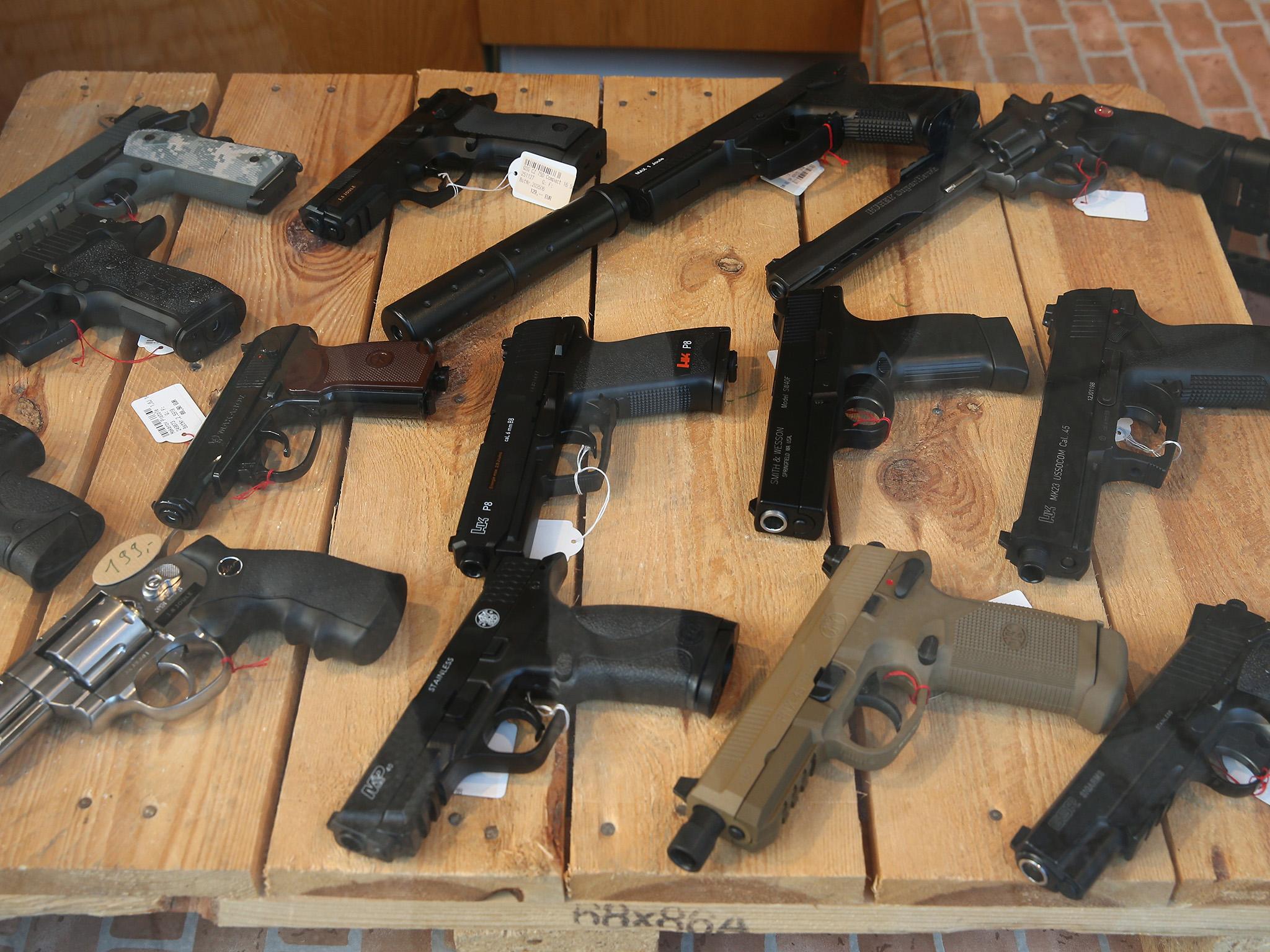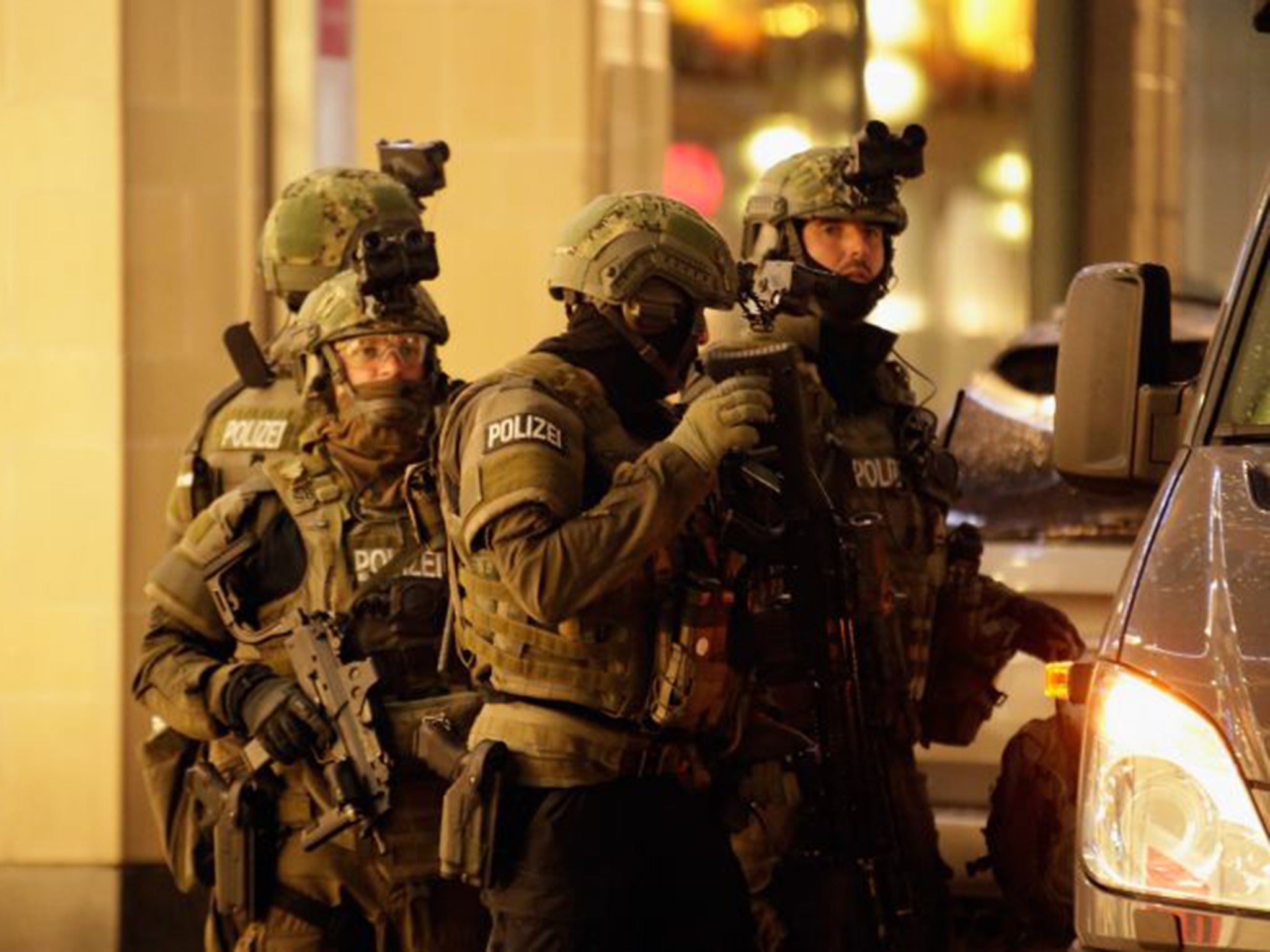Munich shooting: Germany’s strict gun control laws did not prevent horrific attack
Most mass shootings in Europe that are not associated with international terror groups have been carried out with legally obtained weapons

Your support helps us to tell the story
From reproductive rights to climate change to Big Tech, The Independent is on the ground when the story is developing. Whether it's investigating the financials of Elon Musk's pro-Trump PAC or producing our latest documentary, 'The A Word', which shines a light on the American women fighting for reproductive rights, we know how important it is to parse out the facts from the messaging.
At such a critical moment in US history, we need reporters on the ground. Your donation allows us to keep sending journalists to speak to both sides of the story.
The Independent is trusted by Americans across the entire political spectrum. And unlike many other quality news outlets, we choose not to lock Americans out of our reporting and analysis with paywalls. We believe quality journalism should be available to everyone, paid for by those who can afford it.
Your support makes all the difference.Germany has some of the world’s strictest gun laws, but that did not stop Friday’s Munich attacker from carrying out his shooting spree.
The assailant most likely obtained his pistol illegally and did not have a licence, German police officials said. That development could have worrisome implications for a country that has already exhausted most legal means to prevent such shooting sprees.
“Germany has a good system of legal gun ownership, but illegal firearms pose a big problem,” said Nils Duquet, a weapons expert in Belgium who works for the Flemish Peace Institute. According to Mr Duquet, there are millions of illegal weapons in Europe, but he said it is impossible to know exactly how many.
Following two horrifying school shootings in 2002 and 2009, German politicians passed stricter gun legislation that made it harder to legally obtain weapons. Buyers younger than 25 must now pass a psychological exam before being able to acquire firearms in Germany. Shooting incidents significantly dropped as a consequence.
Theoretically, those measures might also have stopped the 18-year-old Munich attacker from being able to buy a gun legally. Officials believe the suspect could have been depressed, and a video – which police have said appears authentic – shows the attacker saying he had gone through “inpatient treatment".
Most mass shootings in Europe that are not associated with international terror groups have been carried out with legally obtained weapons. “The fact that he used an illicit weapon does not imply that he did not also search for ways to obtain one legally, at first,” Mr Duquet said.
Mr Duquet also emphasised that the attacker's use of a pistol was significant. “If you want to buy an illegal gun in Europe, what's important is having the right networks. For assault rifles, you need better criminal connections,” said Mr Duquet. “But there are many hot spots in Europe where you can try, and that is what's worrying.”
The possibility that the 18-year-old acquired his pistol illegally will raise new concerns over the illegal-weapons trade not only in Germany.
Among several other factors, the borderless Schengen Area within the European Union and Europe's proximity to current or former war zones have facilitated illegal-weapons transports into the continent.
Traveling from one country to another within the Schengen Area does not require showing documentation or passing through a border control.
An increasing number of terrorist attacks over the past two years were carried out with illegal pistols and semi-automatic rifles from Eastern Europe.
The Balkans pose a particular risk as a source of weapons, where millions of firearms that were used during the region's wars are still believed to be in circulation. Although those weapons are older, they are still being smuggled and later sold in Western Europe.
At least some of the weapons used in the January 2015 shootings in Paris were reportedly purchased legally in Slovakia, according to the Guardian and the Wall Street Journal.

Metal pins were placed in the barrel to render the guns useless, allowing for their sale. But the pins were hammered out illegally after the weapons' purchase.
Reactivating a decommissioned weapon usually takes only hours, said Philip Boyce, a British firearms and forensics expert who often analyses such cases as an expert in court. In an interview earlier this year, Mr Boyce emphasised that continental Europe had long failed to pass stricter laws on the decommissioning of weapons, contrary to Britain.
“The British standards often make it virtually impossible to turn a decommissioned weapon back into an active one,” Mr Boyce said.
In Britain the shooting mechanism of guns is usually completely removed in the process. But gun collectors in continental Europe have pressured lawmakers and salesmen to preserve most of the original firearm by not removing the entire shooting mechanism.
Mr Boyce and other experts say the lack of restrictions has mainly helped criminals. Several people have recently stood trial for reactivating such supposedly decommissioned weapons – including in Germany.
© Washington Post
Join our commenting forum
Join thought-provoking conversations, follow other Independent readers and see their replies
Comments